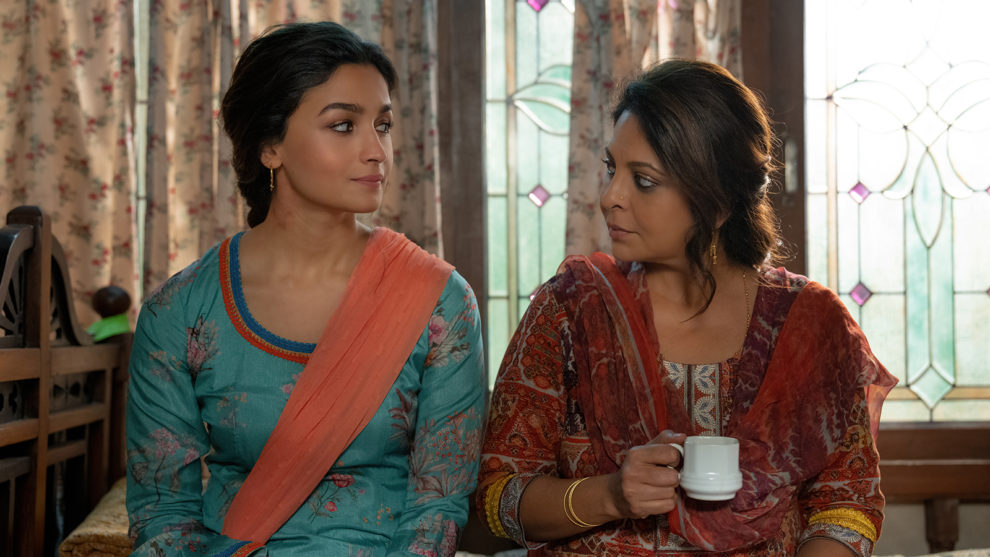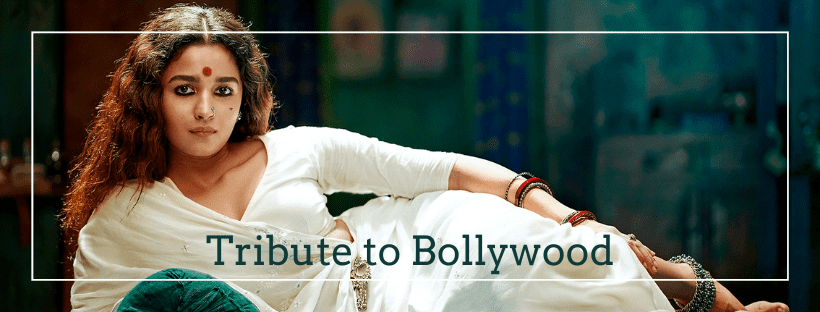Dark comedies are a genre that can be rather rewarding and entertaining, as filmmakers like Park Chan-wook and Bong Joon-ho have exhibited time and time again. It takes, however, a very steady directorial hand to achieve the balance demanded, and, unfortunately, debutante Jasmeet K. Reen falls are at least partially short of retaining it. Let us see, however, if the presence of Alia Bhatt (also in the role of the producer for the first time) and the involvement of Red Chillies Entertainment (Shah Rukh Khan and his wife's company) managed to salvage the film in the end.
The film begins with Hamza Shaikh announcing to his girlfriend, Badrunissa “Badru” Shaikh, that he has finally succeeded in an interview about a government job, subsequently proposing, to her intense joy. 3 years later, the couple is living in a small apartment over a hairdresser's but
Hamza has succumbed to alcoholism, frequently beating his wife, to the disgruntlement of her mother, Shamshunissa “Shamshu” Ansari, and a family friend, Zulfi, who is the one who eventually makes an anonymous complaint to the police about the whole situation. Badru, however, still loves her husband, and despite the opportunity present, she decides to forgive him once more, also due to her will not to end up alone like her mother. At the same time, Hamza is also in a tiff with the rest of the neighborhood, since he is the only against the proposition for a renovation of the chawl they reside in. The events following the complaint, and a series of news seem to change him, but his turnaround does not last for long.
The main issues with the film become evident quite early on. To begin with, having a narrative that revolves around the abuse a wife suffers in the hands of her husband and presenting the whole thing with a sense of hilarity emerges as a rather tasteless approach. Furthermore, the fact that Badru continues to stay with him and that his punishment in the end comes as a sort of divine intervention and is mostly due to his drinking rather than his violent demeanor, adds to this annoying sense even more.
Apart from that, the writing starts faltering particularly after a point, with the scenes after his most violent act looking almost nonsensical, lagging and delaying the movie for no apparent reason, with the same applying to the various music-video sequences, which are, though, inherent to Hindi cinema. Furthermore, the whole concept of Zulfi and Shamshu is underdeveloped and disconnected from the narrative, with the same applying to a number of side-arcs, concluding an overall faulty job in the narrative of the film, that does not benefit by the overall editing either.
The aforementioned do not mean that the film is without merits. The visual prowess, courtesy of the lush production and Anil Mehta's cinematography is evident throughout, with the vivid colors and Garima Mathur's production design resulting in a true visual extravaganza, in an approach that is not so frequent in family dramas. Furthermore, Alia Bhatt's charisma and beauty once more fill the screen, while her chemistry with Shefali Shah's Shamshu is excellent throughout, and even more so in the scenes where it actually dictates the pace of the movie in the way the two interact with each other. Vijay Varma as Hamza is also convincing as the apogee of the passive-aggressive villain. On the other hand, the focus on how good Bhatt looks no matter what she wears does get a bit hyperbolic after a fashion, in an element that can only be described as fanservice.
“Darlings” is a film filled with different elements, both cinematic and contextual, some of them positive, some of them negative. As a total, however, the sum is definitely on the minus, with the movie emerging more annoying than entertaining.

















